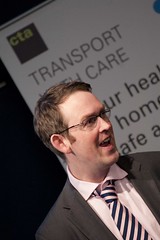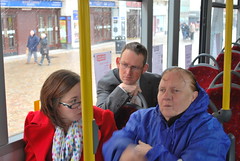Paul Maynard MP
House of Commons, London, SW1A 0AA.
Dear resident,
Saturday morning was a curious combination spent in Sainsburys on Red Bank Road. I did a bit of a ‘Fareshare’ food drive, and a bit of a mini-surgery. More about Fareshare later. But doing a supermarket surgery is often a bit of a step into the unknown. Of all the people who stopped me, only two were ‘negative’ (insert definition here!) whilst the remaining, vast majority were nothing other than extremely pleasant and supportive. Of course, that doesn’t include all those who walk past giving you side-long glances that suggest if they did have a thing or two to say, it wouldn’t be entirely positive.
A few remarked that I was brave standing there. However, it is an important part of my job as the Member of Parliament to make myself available to the public in as many different settings as possible, and at different times – and if people have critical things to say, it is part of being accountable. It is always good to get feedback, and even the positive comments give me a little more encouragement to keep working hard. I am gratified how many say they enjoy reading the Letter from Westminster – and one gentleman even said he had taken up last week’s recommendation to try the cooked breakfast at Wyre Country Park and agreed with me! Not all locations or mechanisms work in terms of productive interaction, but clearly there is a place for the supermarket surgery every so often, and I am very grateful to both Tesco’s and Sainsbury’s for allowing me a space in their stores.
Sainsburys were also running, by complete chance, its national Fareshare drive to bring more food to those in need. Fareshare (www.fareshare.org.uk) is an excellent charity which is seeking to tackle some of the underlying effects of ‘hidden hunger’ here in the UK by gathering in unsold stock from the food industry nationwide. It ought to shock us – and it shocks me – just how many increasingly rely on food parcels in this country. And it isn’t always just about household income, as there can be many reasons underlying having recourse to a food bank. But we should set it against the amount of food waste in this country – not just the food we purchase ourselves, which we do not consume, but also the food that isn’t purchased in the first place. I am as guilty as anyone in that I sometimes find myself throwing away food because it has gone past its use by date without me eating it. Reading up on Fareshare is certainly make me think again about my patterns of food use.
Fareshare plays a key role in providing that surplus food to charitable groups that can make use of it – from day care centres to hostels to breakfast clubs at schools. The regional depot for the North West is in Trafford Park – but I would also highlight the local work of the Fylde Food Bank run by Mr & Mrs Turner (www.fyldefoodbank.co.uk) who also do superb work across the Fylde Coast. If you know of a local charity or organisation that may benefit from Foodshare, do let me know and I will get in touch with them.
This whole topic also tied in nicely with my visit to Boundary Primary School on Friday, where they are setting a superb example in terms of growing their own fresh produce on their available ground. Sadly, they haven’t been allowed a pig yet – a new case for me to work on! But I was struck by the energy and enthusiasm of their head Dayle Harrison – proof once again that school leadership is an important quality in raising educational attainment.
Slightly earlier the same day, I had a sneak preview of the new St Mary’s school building. It looks like the building site it is – at the moment – but the concept is clearly emerging, and it is clear just how excited the pupils are at moving in. We also had an excellent presentation from the pupils ahead of the Durban Climate Change Conference, so I shall be writing to Chris Huhne as promised.
Down in Westminster, I have been in and out of the Chamber as usual, speaking on disability hate crime this week. In advance of the debate, I met with the family of Gary Skelly, who you may have seen on the BBC’s Inside Out programme on Wednesday night. Gary was murdered just over a year ago in a disability hate crime, and last Monday’s programme was very, very powerful. They have set up a community group called FACE (www.facefacts.org.uk) whose website is well worth a look. There is coverage of the family here: http://www.bbc.co.uk/news/uk-england-merseyside-15815155 and I am sure you will find it (and the film you can access via the website) as shocking as I did. I still cannot believe that any human would find it acceptable to make someone ‘dance’ in order to have a cigarette from them – how degrading.
As well as that I was guest speaker at the Conservative Disability Group’s colloquium in London, as well as speaking at the Epilepsy Action Patron’s Reception (I’m Vice-President) at the Queen’s Gallery at Buckingham Palace. As a by-the-by, and not that Her Majesty needs any advertising, but the souvenir shop is well worth a visit should you ever be in London. Of course, should you ever be in London, I would hope you stopped by the House of Commons first to see me!
So ends another thought-provoking week.
Yours sincerely,
Paul
01253 473071
16 Queen Street, Blackpool, FY1 1PD.
Check out my YouTube channel: click here





